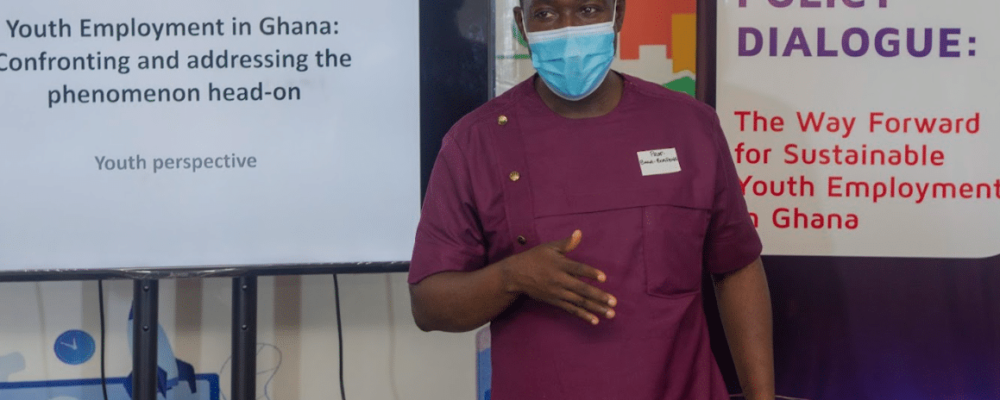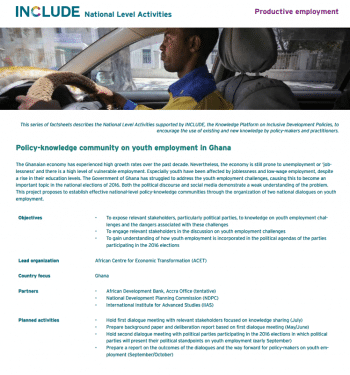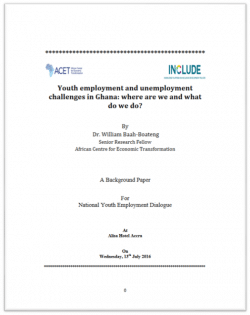
A policy dialogue on youth employment and unemployment in Ghana took place on the 31st of August 2021 inside the conference room and courtyard of the Institute of Statistical Social and Economic Research of the University of Ghana. The dialogue dealt with issues related to graduate employment that have been discussed among academics, policy makers and industry.
The dialogue started with Professor William Baah-Boateng giving a presentation entitled “Youth Employment in Ghana: Confronting and Addressing the Phenomenon Head-on from a youth perspective”. The presentation highlighted that the problem of youth unemployment is a result of slow employment response to economic growth, increasing number of youth amidst limited employment opportunities, poor quality of youth labour and skills mismatch as well as absence of efficient labour market information system.
Following the presentation, it was time for participants to deliberate on four pertinent questions:
- How young people see themselves in the youth employment and unemployment debate in Ghana?
- What accounts for low interest of young people in volunteerism?
- How do young people see the private sector in addressing youth unemployment in Ghana.
- What can young people do themselves to create a career they want?
For the first question, the workshop’s participants noted that in most cases, young people are not offered an opportunity to be at the table when the problem of youth employment is being discussed. They argued that “gerontocratic attitudes” pervade the political scene. For this reasons, young people are underrepresented in youth employment policy formulation processes. One participant cited an instance where she saw a conference being organised on youth employment but the participants all looked older than persons that can be categorized as “youth”. The exclusion of young people in youth employment policy formulation processes means that their experiences in the labour market are not captured in any policy intended to solve their problems.
In responding to the second questions, participants unanimously agreed that the low interest of young people in volunteerism is a result of the lack of appreciation of their contributions by employers. Participants cited instances where they have offered their services to employers to build experience but only ended up being used as messengers to run errands on food and other activities that are not related to real work. When this happens, young people feel that their expertise are not needed and this eventually leads to low job satisfaction and low interest in volunteerism.
Regarding the third question, the participants suggested that the private sector could collaborate with academic institutions to offer internship opportunities for graduates while they are still in schools to enable them to acquire work readiness skills so that by the time they complete their programmes they could easily find job opportunities that are available in the labour market.
For the fourth and final question, participants mentioned actions that they would undertake to actualise their career ambitions. Some of the answers that came during the deliberation were:
- identifying their passion,
- developing a career plan,
- getting role models and mentors.
Certainly, the dialogue recognised that the graduate unemployment problem lies on the actions and inactions of economic actors including the government, private sector, and academic institutions. Hence, it is high time that all stakeholders came together to tackle the problem head on. While the dialogue fell short on the number of participants of young people as evidence by a number of empty seats in the conference room, it did a great job of targeting young graduate from several professional background, while representing well both young women and men.

